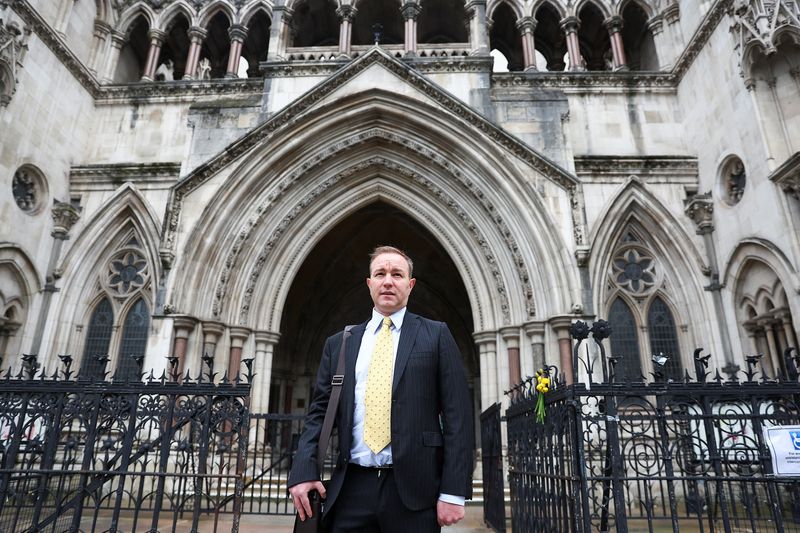By Kirstin Ridley and Sam Tobin
LONDON (Reuters) -The "unfair" conviction of Tom Hayes, the first trader jailed worldwide for Libor rate rigging, should be overturned because the trial judge had made grave errors when directing the jury almost a decade ago, his lawyer told a London court on Thursday.
Adrian Darbishire, representing Hayes, said the judge was wrong to tell the jury that Libor interest rates could not be genuine if they reflected any trading advantage - denying them the right to determine whether Hayes had acted honestly.
"The jury was told it was legally not honest for commercial consideration to be taken into account," he said, noting that dishonesty was a matter of fact, not law.
"We say that was wrong."
Hayes, a former star Citigroup and UBS trader, was convicted of conspiracy to defraud by manipulating the London interbank offered rate (Libor), once used to price trillions of financial products globally, between 2006 and 2010.
The 44-year-old former yen-derivatives trader, who has been diagnosed with Asperger's syndrome, has spent nine years trying to unravel a key Serious Fraud Office (SFO) prosecution. He was released from jail on licence in 2021, after serving half of an 11-year sentence.
His appeal is being heard alongside that of Carlo Palombo, a former Barclays (LON:BARC) trader convicted in 2019 of skewing Libor's euro equivalent, Euribor.
The case hinges on the definition of Libor and whether such global benchmark rates could still reflect an honest assessment of the cost of borrowing between banks if they benefited trading books.
The case is being keenly watched by other traders, some of whom attended the hearing on Thursday and have hired lawyers to look into the possibility of bringing their own appeals.
Darbishire said the judge at Hayes' trial wrongly told the jury there was an "absolute legal prohibition on commercial considerations" when setting Libor rates that were routinely "set by people who had an interest in its answer".
"Everyone understood that," he said.
Hayes maintained during his trial that the rates he requested fell within a permissible range – and that his conduct was common at the time and condoned by bosses.
Hayes and Palombo are back in court after the independent Criminal Cases Review Commission (CCRC), which reviews potential miscarriages of justice, last year sent their cases for appeal following a landmark U.S. court decision in 2022.
A U.S. appeals court acquitted two former Deutsche Bank (ETR:DBKGn) traders, ruling there was no prohibition on banks considering their trading position when submitting Libor rates.

The SFO, which prosecuted 19 over benchmark rigging and secured nine convictions, argues Libor rates set for commercial purposes were intended to prejudice the rights of counterparties and deliberately disregarded how the benchmark should be set.
"The fact that an American court came to a different determination ... is irrelevant to the fairness of the appellant's trial and the safety of his conviction," its lawyers said in court filings.